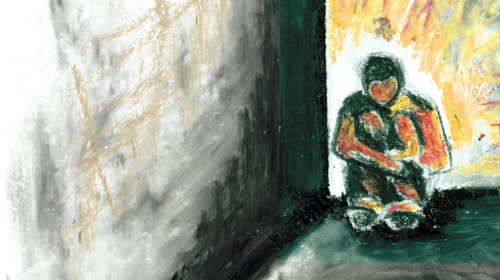Seeking a Second Chance: Children Sentenced to Life Without Parole Seek Justice Before International Tribunal


By her thirteenth birthday, Barbara Hernandez had lived with an abusive, alcoholic father and been molested by her mother’s second husband. At fifteen, Barbara dropped out of school and moved in with her boyfriend James, who beat her and coerced her into prostitution. Barbara’s life with James had taught her that she had two choices: obey him or face physical abuse. So when James instructed her to buy him a knife and lure a man into their home, Barbara obeyed. While she was in another room, James stabbed the man to death. Despite Barbara’s youth, troubled background, and the fact that she did not physically commit the crime, Barbara was tried as if she were an adult and received the harshest sentence possible in the State of Michigan, life without the possibility of parole. She was just sixteen, and about to spend the rest of her life in prison. In Barbara’s words, she was sentenced to a “long slow death.”

Barbara’s case is not unique; she is just one of approximately 2,500 Americans serving life without the possibility of parole sentences for crimes committed when they were children. In stark contrast, in the world subjects children to such sentences.
Having exhausted her options before U.S. courts, together with thirty-one other Michigan residents serving life without parole sentences for crimes committed as children, Barbara has taken her case to the , a Washington, D.C.-based tribunal charged with examining allegations of human rights abuses committed by members of the , including the U.S. Their petition charges that the United States and the State of Michigan are violating and universal human rights principles by sentencing them to a life sentence without the possibility of parole for crimes they committed before their eighteenth birthdays.

There are currently 362 individuals serving such sentences in the State of Michigan, the second-largest number among jurisdictions in the United States. This high number is due in part to Michigan’s strict sentencing laws which allow children as young as fourteen to be charged and tried as if they were adults without any consideration of their age, lesser culpability or unique capacity for rehabilitation. Once tried and convicted of certain crimes, they could then be subjected to a mandatory sentence of life without parole. Recently, in the Supreme Court ruled that such mandatory sentencing schemes are unconstitutional. However, despite Miller and other recent Supreme Court decisions protecting children from unduly harsh punishments, U.S. laws still allow for the possibility of children being locked away for the rest of their lives. This means that regardless of whether they have been rehabilitated and can be reintegrated into society, they may languish behind bars until they die with no opportunity for review of their sentences.
This runs contrary to international law and practice. Recognizing that children who commit crimes should be afforded a second chance, universal human rights laws and standards, including the American Declaration, have long proscribed the imposition of life without parole sentences on anyone who commits a crime when they are below eighteen years of age. The , a treaty ratified by every nation in the world except for the United States, Somalia, and the new nation of South Sudan, explicitly prohibits the practice and also requires that States take measures to ensure that children convicted and sentenced to a term of imprisonment are properly rehabilitated and reintegrated back into society at the end of their sentence.
Today, Barbara Hernandez is thirty-eight years old, and has spent more than half of her life in prison. During this time, Barbara has matured into a caring woman who feels deep remorse for the pain she has caused others. She wants an opportunity to show the world that she has changed for the better. Of her future Barbara states, “I don’t simply want to be a productive member of society, I know I have a purpose!... Responsibilities that I am ready to take on, and fulfill.”
While children should be punished for the crimes they commit, they also deserve a meaningful opportunity to demonstrate, as Barbara has done, that they have changed and are ready to take their place in society again. With her submission this week to the Inter-American Commission, Barbara seeks this opportunity for herself and all others in the United States locked away as children without hope of a second chance.
Learn more about juvenile justice: Sign up for breaking news alerts, , and .


